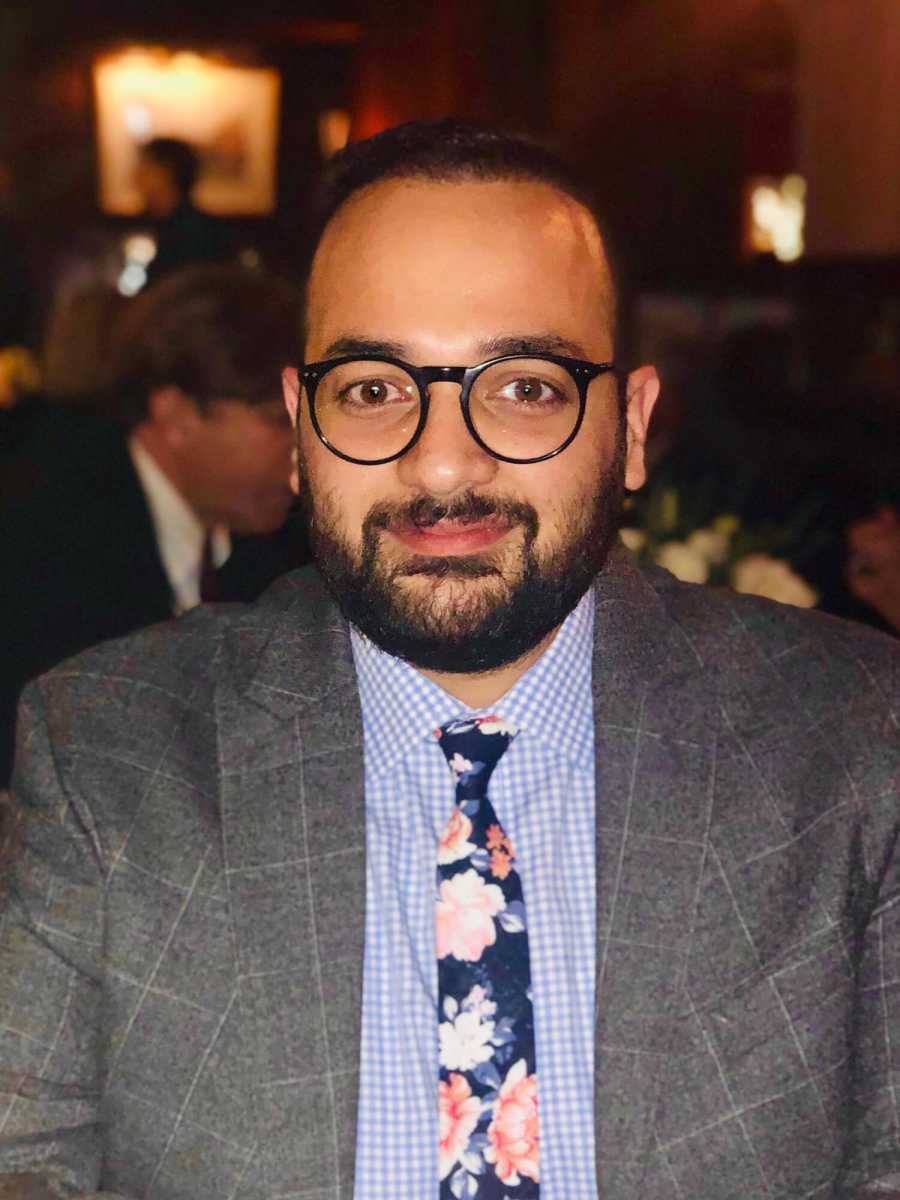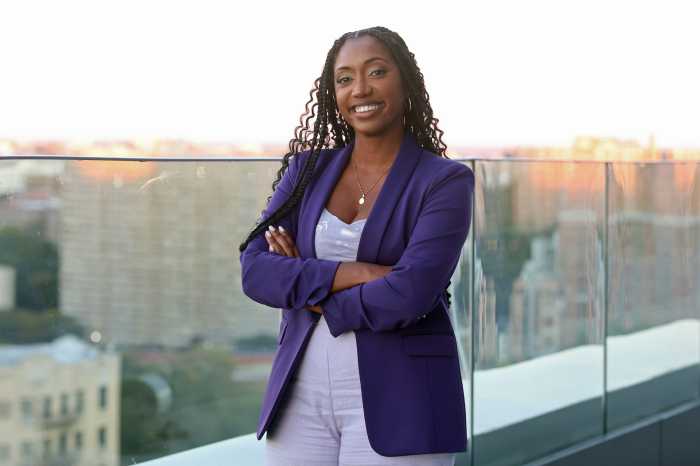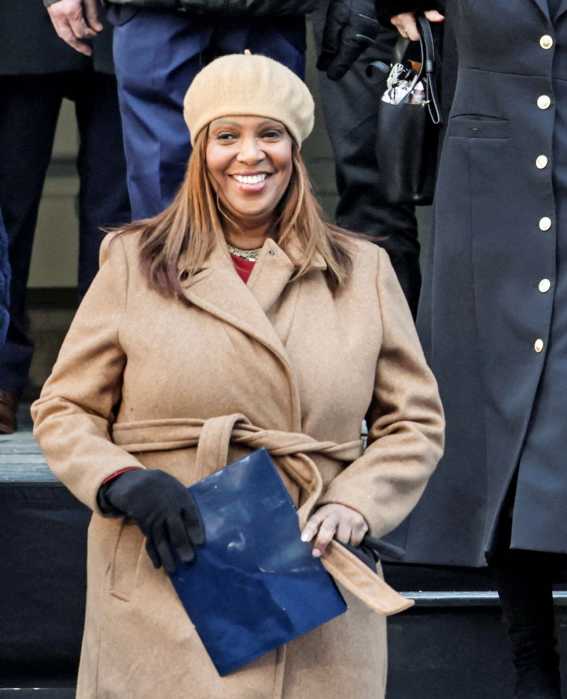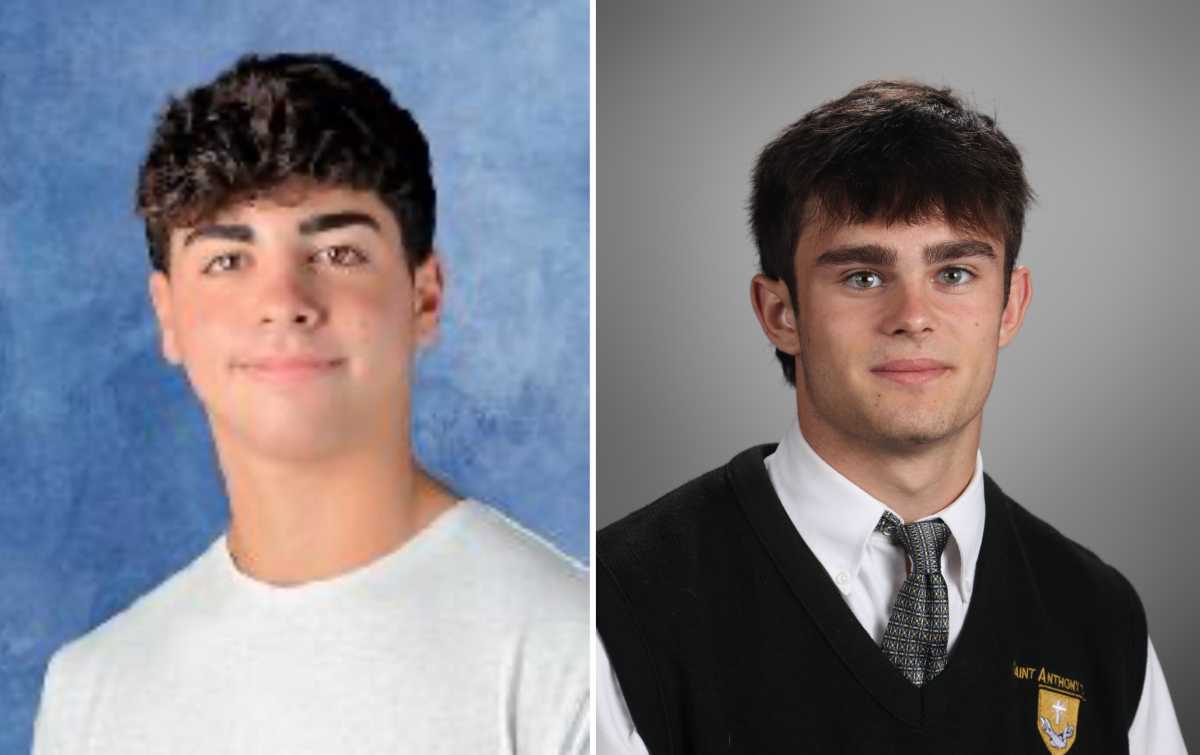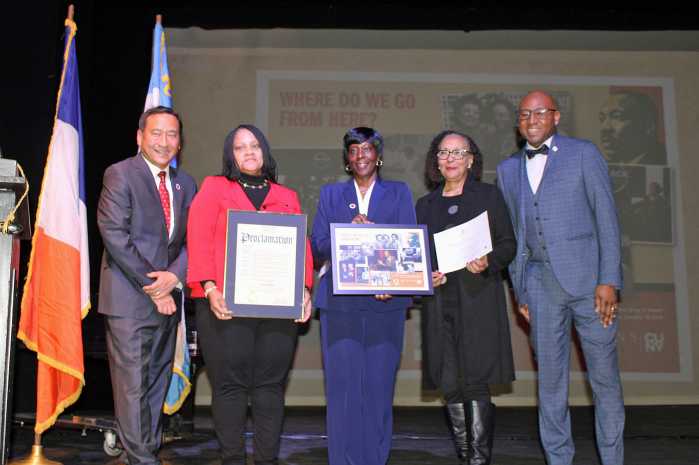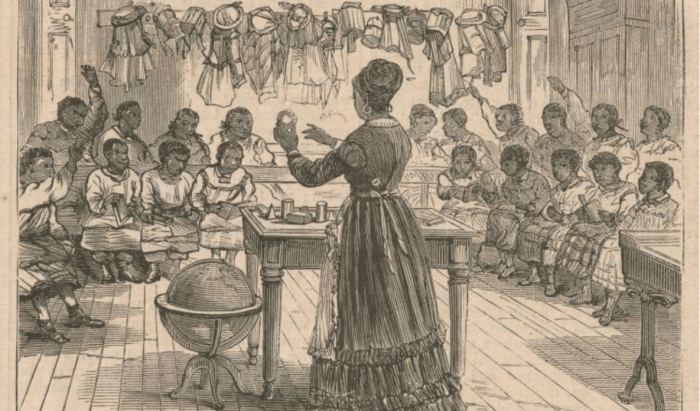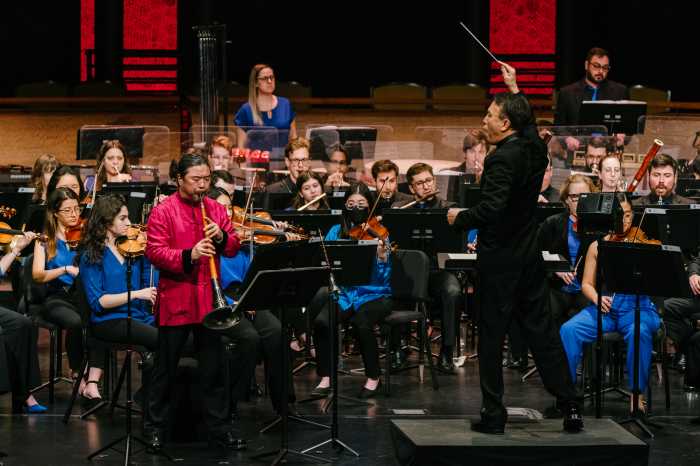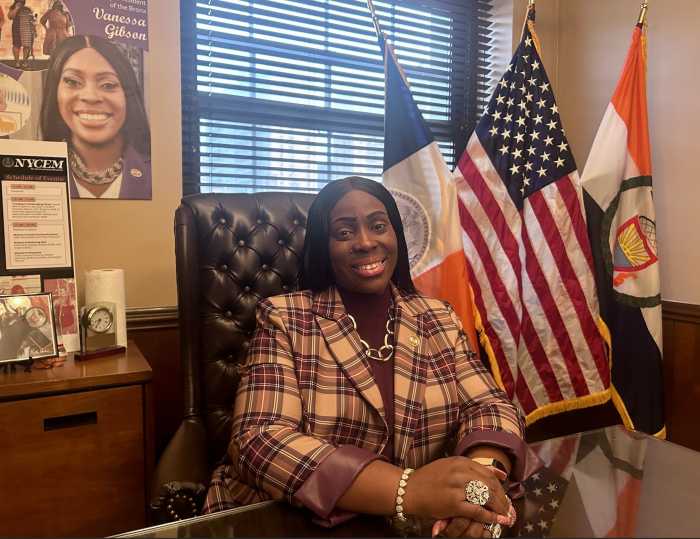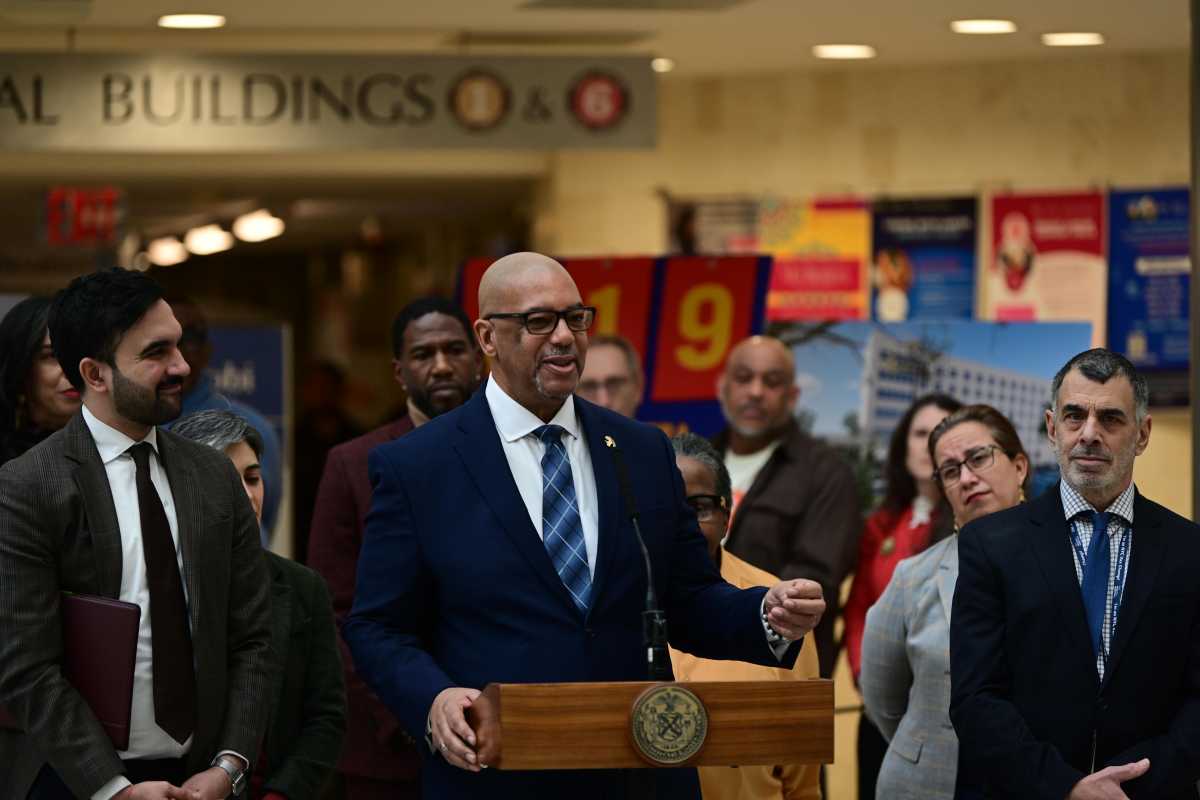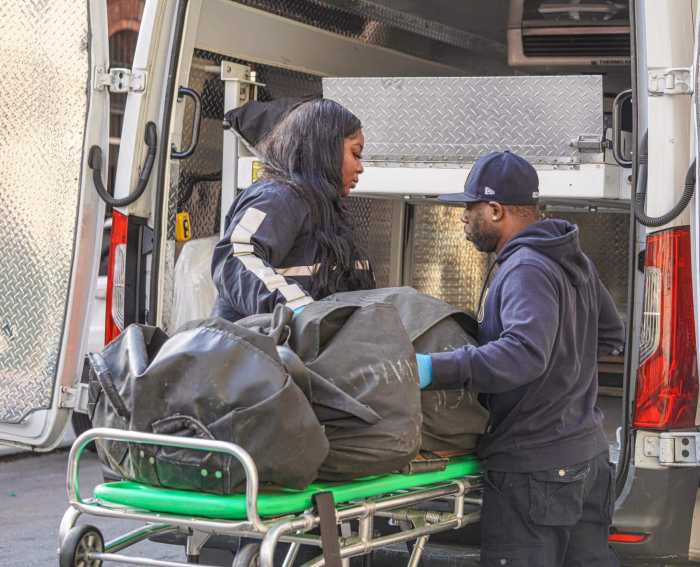The New York Immigration Coalition (NYIC), an umbrella policy and advocacy organization that represents over 200 immigrant and refugee rights groups throughout New York, claims that the Adams administration’s preliminary budget for Fiscal Year 2025 has left Caribbean and other asylum seekers “out in the cold.”
Many of the migrants and asylum seekers arriving in New York from the Southern Border of the United States are nationals of Cuba, Haiti, Venezuela and Nicaragua.
Murad Awawdeh, NYIC’s executive director, told Caribbean Life that Mayor Eric Adams’ budget brief on Tuesday “did not reflect the significant support New York State is committing to address asylum seeker costs – to the tune of $2.4 billion in additional funding.
“The mayor’s now-incomplete proposed budget for FY25 (Fiscal Year 2025) seems to be more of an attempt to improve his polling numbers rather than a considered plan to meaningfully improve the lives of new arrivals or longtime New Yorkers,” he said.
“According to the mayor, this reversal of budget cuts from November was due to increased revenues, downward adjusted census projections for new arrivals, and anticipated cost-savings from things like renegotiating contracts with expensive no-bid shelter operators and moving some social service delivery to nonprofit groups—both of which were solutions proposed by organizations like ours for the past year,” Awawdeh added.
“It’s nice to see the mayor seize on good ideas and make them his own. But it would have been better if he had co-opted another good idea: expanding access to housing vouchers to New Yorkers regardless of immigration status, saving the city $3 billion while getting people out of shelters and on the road to stability and independence,” he continued. “Choosing to release the FY25 Preliminary Budget without reflecting increased resources from the State to support migrant service was an attempt to avoid accountability for the crisis he has manufactured so he can continue to paint himself as a victim with no agency or resources to meet the needs of his constituency.”
Awawdeh said the mayor’s “failure to take responsibility for the harm he is actively inflicting on immigrant families and children with his 30- and 60-day shelter restrictions, which risk increasing homelessness in the dead of winter, will only prolong a wholly unnecessary budget crisis at an unprecedented time.
“Immigrant New Yorkers deserve better and all working families deserve more than just the bare minimum from this administration,” he said. “New Yorkers didn’t fall for his attempt to scapegoat immigrants for his fiscal management choices before, and we won’t be fooled now.”
Natalia Aristizabal, deputy director of Make the Road New York, another immigrant advocacy group, said: “Today Mayor Adams continued his wholly irresponsible approach to New York City’s budget, finally recognizing revenue that everyone knew was there, and using it to justify reversing some of the cuts that no one believed were necessary.
“This govern-by-whiplash approach would be laughable if its effects were not so tragic: reduced hours at libraries, fewer resources for schools, and communities divided against one another because of the mayor’s divisive rhetoric,” she said.
“And let’s not be fooled: the mayor is still trying to massively cut our public schools and other critical services, while boosting funds to an already bloated NYPD that has flouted transparency and accountability measures at every turn,” Aristizabal charged. “Our communities will continue to rise up to stop this recklessness from City Hall.”
Public Advocate Jumaane Williams, the son of Grenadian immigrants, also told Caribbean Life that, while restoring key services in this budget is “vital”, “it does not undo the several previous rounds of cuts, or the damage done.
“This restoration isn’t the result of solid budgeting, but misleading math — single-handedly slashing services based on inaccurate projections, then reversing them,” Williams said. “New Yorkers’ trust in government erodes any time they are misinformed by government about policies and programs.
“The financial challenges our city faces are valid, but too often the administration’s characterization of them is not, and their first impulse is always to cut,” he added. “I urge the administration, as it works with the Council toward a final budget, to adhere to our mandate to be both fiscally and morally responsible in governing.”
City Council Speaker Adrienne Adams and Finance Chair Justin Brannan said that, while they are pleased about relief for some programs and will continue to review the Mayor’s Preliminary Budget for Fiscal Year 2025 (FY25), “it is critical to underscore the need for a better approach to budgeting that is based on a more accurate and shared set of facts.
“Budgets and the numbers that determine them have significant implications on the lives of all New Yorkers, including the hardworking public servants in our city agencies,” they said in a joint statement. “It is counterproductive for New Yorkers to needlessly fear dire threats to essential services they rely upon when so many are struggling through an inequitable recovery.
“Agencies should not be pre-occupied and demoralized by unnecessary budget exercises when they have no shortage of work to complete on behalf of New Yorkers,” Adrienne Adams and Brannan added.
With near-record reserves, despite significant fiscal challenges, the mayor said the budget builds on his administration’s “proven track record of responsible fiscal management and stabilizes the budget, while prioritizing the needs of working-class New Yorkers by restoring critical investments in public safety, public spaces, and young people.”
Facing a historically high $7.1 billion budget gap due to the growing asylum seeker crisis, drying up federal COVID-19 stimulus funding, expenses from labor contracts the administration inherited that went unresolved for years, and slowing tax revenue growth, Adams said his administration took action early in the budget cycle by implementing a citywide hiring freeze and Program to Eliminate the Gap (PEG) savings program.
“These actions helped balance the budget and stabilize the city’s financial position without layoffs, tax hikes, or major disruption to city services — and their success, along with better-than-expected tax revenue growth, ultimately allowed for the restorations of funding for public safety, quality of life and young people,” he said in releasing the preliminary budget on Tuesday.
“Our administration came into office focused on making New York City safer, more prosperous, and more livable. With two years of hard work, we are heading in the right direction: Jobs are up, crime is down, tourists are back, our children’s test scores are better, and we are delivering for working-class New Yorkers every day,” Mayor Adams added. “The growing asylum seeker crisis, COVID-19 stimulus funding drying up, tax revenue growth slowing, and unsettled labor contracts that we inherited widened the FY25 budget gap to a record level.
“But, with responsible and effective management, we have been able to provide care for asylum seekers and balance the budget — without unduly burdening New Yorkers with a penny in tax hikes or massive service reductions, and without laying off a single city worker,” the mayor continued. “We are not out of the woods — while we have put New York City on the right track, to keep moving forward, we still need help from the federal and state governments.
“But this carefully planned and disciplined budget allows us to keep helping working families, keep providing opportunity for all New Yorkers, and keep our city a beacon of hope, while we deliver a safer, cleaner, and fairer New York,” he said.
The mayor said New York City has continued to effectively manage the asylum seeker humanitarian crisis largely on its own without substantial federal or state aid — including getting on track to reduce city-funded spending on the crisis over FY24 and FY25, primarily by helping put migrants on a path to self-sufficiency and reducing the household per-diem costs of providing care.
To date, he said New York City has provided care for more than 170,700 asylum seekers, with over 68,000 currently still in the city’s care.
Adams said the city has also connected school-aged children to public schools through Project Open Arms and provided case management, shelter, food, child care and more services.
As a result of the administration’s policies — including providing 30 to 60 days of intensified case management — Adams said more than 60 percent of the asylum seekers who came through the city’s intake center have left the city’s care and taken the next steps in their journeys.
Additionally, he said daily growth of the number of migrant households in the city’s care has slowed by nearly 60 percent since implementing these policies.
Through the Asylum Application Help Center and the city’s satellite sites, Adams said the city has helped submit more than 27,000 work authorization, temporary protected status, and asylum applications — “moving asylum seekers that much closer to being able to legally work and be self-sufficient.”


